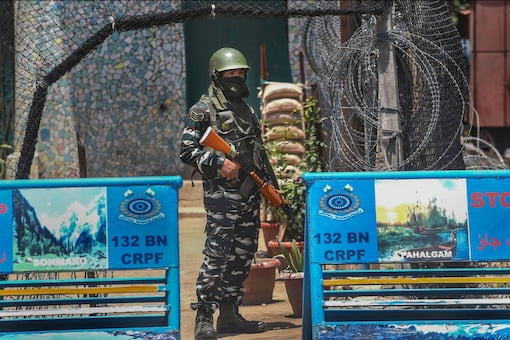The ministry of home affairs has approved a proposal to buy vehicle-mounted remote-controlled improvised explosive device (RCIED) jammers for VVIP protectees in the face of an increasing threat from IEDs, particularly remote-controlled ones.
The Central Reserve Police Force (CRPF) plan, which provides security to all top leaders, ministers, and dignitaries, including union home minister Amit Shah, Congress leaders Sonia Gandhi and Rahul Gandhi, Bharatiya Janata Party president JP Nadda, and others, has been approved at a cost of approximately Rs 45 crore.
One such vehicle is estimated to cost around Rs 4.5 crore, according to a communication.
The CRPF will now begin the process of acquiring ten of these vehicles outfitted with RCIED jammers.
According to sources, the forces face a severe shortage of such vehicles and rely heavily on states. In the event of a VVIP visit, these jammers will be used in sensitive areas, particularly in Jammu and Kashmir, and in areas prone to left-wing extremism.
According to home ministry data, IED seizures in J&K are on the rise.
“A proposal regarding RCIED jammers was sent last year in October in light of a growing threat from IEDs under police modernization.” The proposal was approved a few days ago, with an estimated cost of Rs 45.19 crore.
These jammers will be used when VVIPs are moving through sensitive areas. It is a critical vehicle-mounted jammer that is required for convoy movement “According to a senior government official, “The vehicles will be used based on the threat perception of VVIPs, as well as in areas where the number of cases of explosives use has been high in recent months.” Various states have these vehicles, but the Centre has decided not to rely on state infrastructure for dignitary protection.”
WHAT ARE RCIED JAMMER VEHICLES?
RCIED jammers are an important system for dealing with threats posed by improvised explosive devices. The vehicle-mounted jammers shield nearby areas from IED blasts by blocking the specific radio frequency required to trigger an explosion. Because they have multiple vehicle-mounted antennas, such vehicles are easily visible during the Prime Minister’s and President’s movements.
THREAT GETTING BIGGER
The biggest concern for security forces in Jammu and Kashmir this year is data from 2021 on attacks involving improvised explosive devices, their seizures, and their widespread use by terrorists. According to official data, jihadists have begun to use the Naxal strategy of planting IEDs to target soldiers, particularly since the 2019 Pulwama attack, which killed 40 CRPF jawans.
According to government data, there is an increase in IED attacks in J&K by terrorists, as well as an increase in device seizures, instances of IEDs being disposed of by security forces, and personnel being killed in attacks with these explosives, among other things.
According to the NSG bomb data center’s analysis of IEDs, 132 blasts occurred across the country in 2021, killing 80 people.
WHAT IS AN IED?
IEDs are built with a variety of electrical components such as a switch, an initiator, a charge, a power source, and a container. According to the US Department of Homeland Security, IEDs may be surrounded or packed with additional materials or “enhancements” such as nails, glass, or metal fragments to increase the amount of shrapnel propelled by the explosion. Other elements, such as hazardous materials, may also be included in enhancements. Depending on the intended target, an IED can be detonated in a variety of ways.
